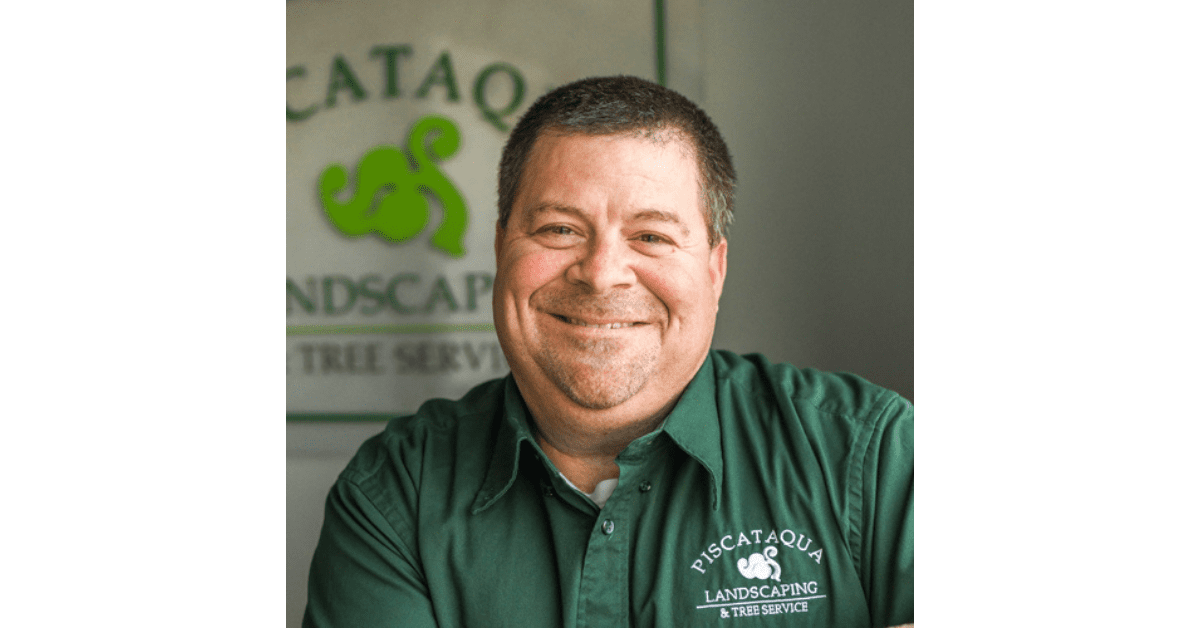
Jay Rotonnelli has been in the landscape industry for 32 years. He has worked his way up through the years holding positions such as supervisor, account manager and co-managed a maintenance department as well.
He grew up helping his family on their 31-acre apple orchard. When the property owner came to develop their orchard, they started another garden center not too far away, growing perennials and focusing on helping customers.
Rotonnelli went on to earn his degree in landscape horticulture and started running the landscaping side of the business, while his brother managed the retail aspect.
They grew the business to 10 greenhouses and about 15 employees. Eventually, they decided to break the business apart since Rotonnelli wasn’t interested in the growing side. He went on to work for a large firm and was with them for several years.
He joined Piscataqua Landscaping & Tree Service, based in Eliot, Maine, in 2018 as the vice president of business development. In this position, he leads the company’s sales team.
Because the company has been in business for 43 years and is located in an area that are mostly second and third home communities on the seacoast of Maine, they often receive around 1,400 inbound leads a year, which he admits is an anomaly.
“My role as a salesperson fairly easy,” Rotonnelli says. “What the challenge is, is working through on a day-to-day basis qualifying the leads because as any business knows, you’re not always a good fit for a client and maybe the client’s not always a good fit for you.”
Once he has qualified leads, he distributes them to different sales team members depending on their different regions or skills sets.
The company’s mantra is the pursuit of better so they work to embrace technology that can help with their efficiencies.
“It’s interesting how things have evolved and changed through the last 30 years, probably the biggest significance has been technology and customer service,” Rotonnelli says.
Rotonnelli says the technology today is leaps and bounds ahead of where it was in the late 80s and 90s. He says he works to surround himself with people who are engaged with technology.
“I have found that embracing that technology and learning it and understanding it and finding ways to create more efficiencies has really been something that’s helped me boost my career to the next level,” he says.
As for the changes in customer service, Rotonnelli says the demands from the clientele are more rigid, as there’s more competition for business and customer expectations are higher.
Over the years, Rotonnelli says he’s had two mentors – his father and the coach of a business owner who he still stays in touch with. He learned integrity, accountability and business acumen from them.
For young professionals looking for industry mentors of their own, he suggests finding out which career path you are passionate about in the horticultural world first.
“You can go towards agriculture, go towards greenhouse growing, you can go towards landscape contracting,” Rotonnelli says. “I always encourage people, if you really have a strong interest in something, try a few other things first in the landscape business, and then really once you home in on what you really want to do then I think you need to align yourself with some others.”
Connecting at industry events or finding individuals on LinkedIn are some ways to find a mentor. Rotonnelli says at this point in his career he gets more satisfaction from mentoring young people than selling million-dollar jobs.
“There’s a lot of great folks online or out in the community in this industry that are willing to share their knowledge,” Rotonnelli says.
When it comes to tips to grow in their career, Rotonnelli says asking questions and showing an interest in bettering yourself can make you stand out to the leadership team.
“I think it’s great work ethic, and I think it’s being interested in it,” Rotonnelli says. “Throughout my entire career I was always that type of person where I’d either come in a little bit earlier or stay a little bit late, or I’d ask ‘Hey, John, would you mind if I jumped in on that meeting?’ or ‘Could I sit in on that just to hear? I’ll say in the background, but I’m interested to hear how you might handle that.’”
He cautions coming in with a know-it-all attitude and dismissing real-world experience from veterans who have been in the industry for a long time. He says it’s better to approach things with an open mind and a willingness to learn.
“This industry and this business, you can learn something new every single day, which is really cool,” Rotonnelli says. “If you have the passion and along with the skill sets, you really can have a great career in this field.”

